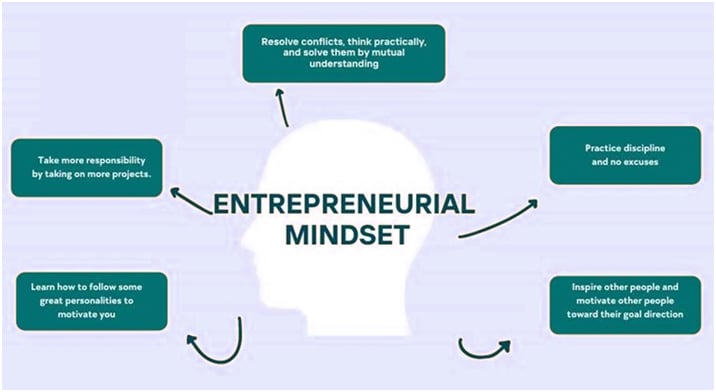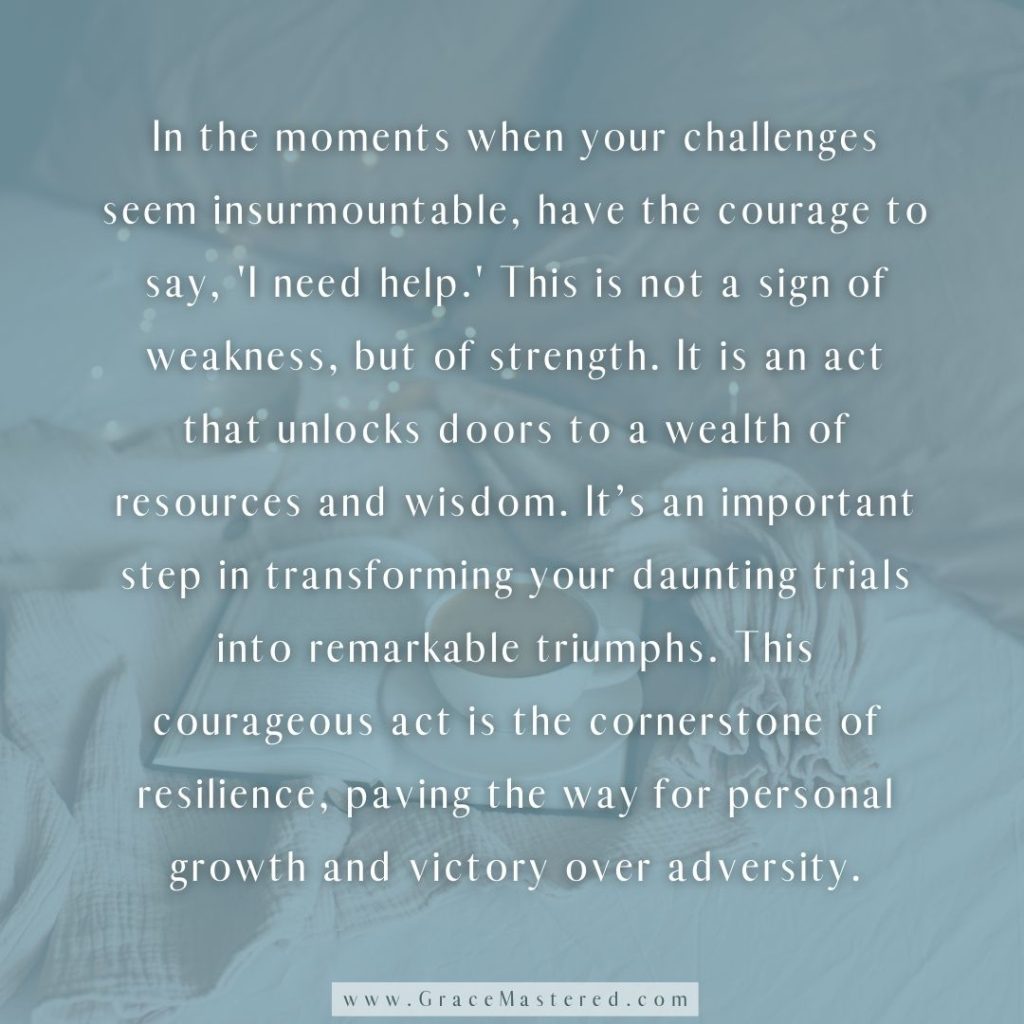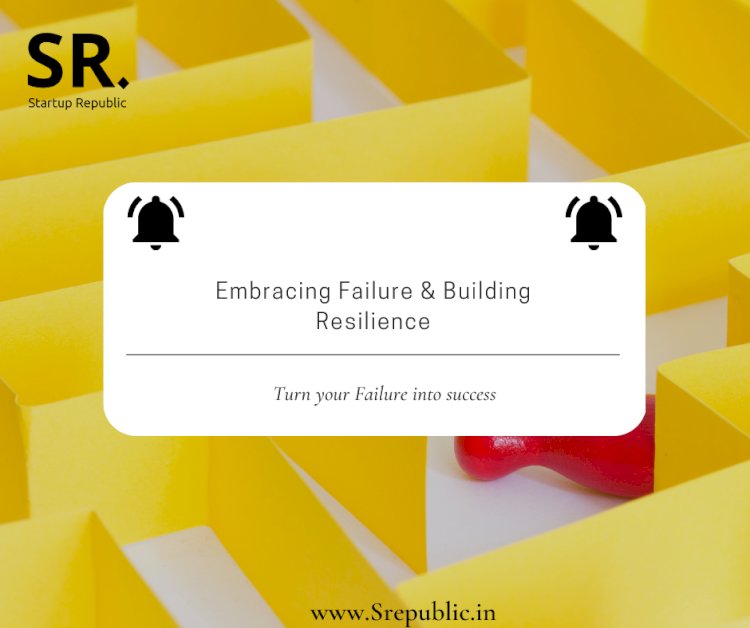
Unlocking Your Potential: Developing an Entrepreneurial Mindset & Essential Traits for Startup Success
Have you ever looked at successful entrepreneurs and wondered what makes them tick? Is it just luck, a genius idea, or some secret ingredient they were born with? The truth is, while a great idea certainly helps, the most crucial factor behind sustained success in the world of business – and life – is something you can learn and develop: an entrepreneurial mindset.
This comprehensive guide will demystify what an entrepreneurial mindset truly is, why it’s so vital, and walk you through the essential traits you need to cultivate to turn your dreams into reality. Whether you’re planning to launch a startup, grow an existing business, or simply want to apply innovative thinking to your career, developing these traits is your first step towards unlocking your full potential.
What Exactly Is an Entrepreneurial Mindset?
At its core, an entrepreneurial mindset isn’t just about starting a business. It’s a way of thinking and acting that focuses on opportunity, innovation, problem-solving, and resilience, no matter the circumstances. It’s about seeing challenges not as roadblocks, but as chances to create value and find new solutions.
Think of it as a special pair of glasses that helps you spot possibilities where others see only obstacles. It’s the engine that drives entrepreneurs to:
- Identify gaps in the market.
- Develop creative solutions to common problems.
- Take calculated risks.
- Learn from failures and bounce back stronger.
- Continuously adapt and evolve.
It’s less about what you do and more about how you approach what you do.
Why Is Developing an Entrepreneurial Mindset So Crucial?
In today’s fast-paced world, an entrepreneurial mindset is more valuable than ever, not just for business owners but for anyone wanting to thrive.
- For Aspiring Entrepreneurs: It’s the foundational blueprint. Without it, even the best idea might falter when faced with real-world challenges. It provides the resilience to push through setbacks and the foresight to pivot when necessary.
- For Existing Business Owners: It keeps you competitive. Markets change, technology evolves, and customer needs shift. An entrepreneurial mindset ensures you’re always looking forward, innovating, and staying relevant.
- For Career Growth (Intrapreneurship): Even if you work for a company, an entrepreneurial mindset can make you invaluable. Identifying problems, proposing solutions, and taking initiative (often called "intrapreneurship") can lead to promotions, new opportunities, and greater job satisfaction.
- For Personal Development: Beyond business, this mindset fosters personal growth. It teaches you to embrace challenges, learn from mistakes, and proactively shape your own future, making you more adaptable and confident in all aspects of life.
Essential Traits of an Entrepreneurial Mindset
Now, let’s dive into the specific traits that form the backbone of a strong entrepreneurial mindset. Remember, these aren’t inherited; they are developed through practice, learning, and conscious effort.
1. Vision & Opportunity Recognition
What it is: This is the ability to see beyond the present, to imagine what could be, and to spot unmet needs or untapped potential where others see nothing. It’s about connecting seemingly unrelated dots to form a new picture.
Why it’s important: Every successful business started with a vision. Without the ability to identify opportunities, you won’t know where to direct your energy or what problems to solve. This trait fuels innovation and helps you stay ahead of the curve.
How to develop it:
- Be curious: Ask "why" and "what if?" constantly.
- Observe your surroundings: Pay attention to frustrations people express, inefficiencies in systems, or emerging trends.
- Read widely: Explore different industries, technologies, and cultures. This broadens your perspective.
- Brainstorm regularly: Dedicate time to just thinking about new ideas, no matter how wild they seem.
- Network: Talk to diverse groups of people. Different perspectives can spark new insights.
2. Passion & Unwavering Persistence
What it is: Passion is the deep, genuine enthusiasm for what you do. Persistence is the unwavering determination to keep going, even when things get tough, and to not give up on your goals.
Why it’s important: Building something new is hard. There will be long hours, rejections, and moments of doubt. Passion provides the fuel to keep you motivated, while persistence ensures you don’t throw in the towel when challenges arise. It’s the grit that gets you through the valley.
How to develop it:
- Connect with your "why": Clearly define why you want to pursue your idea. What problem are you solving? What impact do you want to make?
- Set small, achievable goals: Celebrate small wins to maintain momentum and morale.
- Break down big tasks: Don’t get overwhelmed. Tackle things step-by-step.
- Find an accountability partner: Someone who encourages you and holds you to your commitments.
- Remind yourself of your progress: Look back at how far you’ve come.
3. Problem-Solving & Innovation
What it is: This trait involves actively looking for problems (because problems represent opportunities!) and then creatively devising new, effective, or more efficient solutions. Innovation isn’t just about inventing something entirely new; it can also be about improving existing things dramatically.
Why it’s important: Businesses exist to solve problems. The better you are at identifying and solving them in unique ways, the more value you can create for your customers and the more successful your venture will be.
How to develop it:
- Frame challenges as puzzles: Approach problems with a playful, investigative mindset.
- Practice brainstorming solutions: Don’t censor ideas initially. Quantity over quality in the beginning.
- Learn design thinking principles: Understand how to empathize with users, define problems, ideate solutions, prototype, and test.
- Seek diverse perspectives: Discuss problems with people from different backgrounds; they might have solutions you hadn’t considered.
- Embrace constraints: Sometimes, limitations force more creative solutions.
4. Calculated Risk-Taking
What it is: This isn’t about being reckless. It’s about understanding that growth often requires stepping out of your comfort zone and taking actions where the outcome isn’t guaranteed. A calculated risk means you’ve assessed the potential downsides, weighed them against the potential upsides, and taken steps to mitigate the risks where possible.
Why it’s important: Innovation and progress rarely happen within the safety of the status quo. Entrepreneurs understand that inaction can be a bigger risk than taking a chance. Calculated risks can lead to significant breakthroughs and competitive advantages.
How to develop it:
- Start small: Take minor risks in your daily life to build your comfort level.
- Gather information: Before taking a big leap, research, analyze, and talk to experts.
- Plan for contingencies: What’s your Plan B if things don’t go as expected?
- Understand your fear: Acknowledge your anxieties but don’t let them paralyze you.
- Learn from failures: Every risk, successful or not, offers valuable lessons.
5. Resilience & Adaptability
What it is: Resilience is the ability to bounce back from setbacks, failures, and disappointments. Adaptability is the capacity to adjust quickly and effectively to new conditions, changes, or unforeseen circumstances.
Why it’s important: The entrepreneurial journey is a rollercoaster. Things will go wrong. Plans will change. Markets will shift. Without resilience, you’ll give up at the first hurdle. Without adaptability, you’ll be left behind. These traits ensure you can weather storms and pivot when necessary.
How to develop it:
- Reframe failure as learning: Don’t see mistakes as personal shortcomings, but as data points guiding your next steps.
- Practice self-compassion: Be kind to yourself during tough times.
- Develop problem-solving strategies: Focus on finding solutions rather than dwelling on the problem.
- Stay informed: Keep an eye on industry trends and global events that might impact your plans.
- Be open to change: Don’t get too attached to your initial idea; be willing to pivot if the market demands it.
6. Growth Mindset
What it is: Popularized by Carol Dweck, a growth mindset is the belief that your abilities and intelligence can be developed through dedication and hard work. It’s the opposite of a fixed mindset, which believes these traits are static.
Why it’s important: An entrepreneurial journey requires constant learning, new skills acquisition, and overcoming challenges. A growth mindset fuels this continuous improvement, pushing you to learn from feedback, embrace challenges, and persist in the face of setbacks.
How to develop it:
- Embrace challenges: See them as opportunities to grow, not as threats.
- Focus on effort and process: Praise yourself for the effort you put in, not just the outcome.
- Learn from criticism: View feedback as valuable information for improvement.
- Study successful people: Understand their journey, not just their destination. They likely faced many failures.
- Practice positive self-talk: Challenge negative thoughts about your abilities.
7. Self-Discipline & Proactiveness
What it is: Self-discipline is the ability to control your impulses and stay focused on your goals, even when motivation wanes. Proactiveness is about taking initiative and making things happen rather than waiting for them to happen.
Why it’s important: When you’re your own boss, there’s no one to tell you what to do. You need to set your own schedule, prioritize tasks, and execute them consistently. Proactiveness ensures you’re always moving forward and seizing opportunities.
How to develop it:
- Set clear goals: Know exactly what you’re working towards.
- Create routines: Establish daily habits that support your goals.
- Prioritize tasks: Use tools like the Eisenhower Matrix (Urgent/Important) to focus on what matters most.
- Minimize distractions: Create a dedicated workspace and turn off notifications.
- Take action immediately: Don’t procrastinate on small tasks. "Do it now."
8. Continuous Learning
What it is: This is the commitment to lifelong learning, constantly seeking new knowledge, skills, and insights relevant to your industry, business, and personal growth.
Why it’s important: The world is constantly evolving. What worked yesterday might not work tomorrow. To stay competitive and relevant, entrepreneurs must be perpetual students, eager to adapt their knowledge and strategies.
How to develop it:
- Read books and articles: Especially on business, marketing, technology, and personal development.
- Take online courses: Platforms like Coursera, edX, and Udemy offer courses on almost any topic.
- Attend webinars and workshops: Stay updated on industry trends and best practices.
- Seek out mentors: Learn from experienced individuals who have walked the path before you.
- Experiment and analyze: Treat your business as a living lab. Try new things and measure the results.
How to Cultivate Your Entrepreneurial Mindset: Actionable Steps
Developing these traits isn’t a one-time event; it’s an ongoing journey. Here are some overarching strategies to help you cultivate a robust entrepreneurial mindset:
- Embrace Challenges: Instead of avoiding difficult situations, seek them out. Each challenge is an opportunity to practice your problem-solving, resilience, and adaptability.
- Network Actively: Connect with other entrepreneurs, mentors, and people from diverse backgrounds. Their experiences, insights, and connections can be invaluable.
- Read Biographies of Entrepreneurs: Learn from their successes, but more importantly, from their failures and how they overcame them.
- Practice Self-Reflection: Regularly assess your strengths and weaknesses. What traits do you need to work on? What went well? What could have been better?
- Take Small Steps: You don’t need to quit your job and launch a million-dollar startup tomorrow. Start with a side project, learn a new skill, or solve a small problem for someone.
- Celebrate Small Wins: Acknowledge your progress, no matter how minor. This builds confidence and momentum.
- Find a Mentor: A seasoned entrepreneur can provide guidance, share insights, and offer support when you face obstacles.
- Stay Curious: Always ask questions, explore new ideas, and never assume you know everything.
Conclusion: Your Mindset is Your Greatest Asset
Developing an entrepreneurial mindset is not about being born with special talents; it’s about intentionally cultivating a set of essential traits that empower you to see opportunities, embrace challenges, and persist in the face of adversity. From vision and passion to resilience and a growth mindset, each trait plays a vital role in your journey towards startup success and personal fulfillment.
By consciously practicing and nurturing these qualities, you’ll not only equip yourself for the demanding but rewarding world of entrepreneurship but also transform your approach to every aspect of life. So, start today. Begin by identifying one trait you want to strengthen, and take a small, actionable step towards developing it. Your entrepreneurial journey begins with a shift in perspective – and it’s a journey well worth taking.



Post Comment